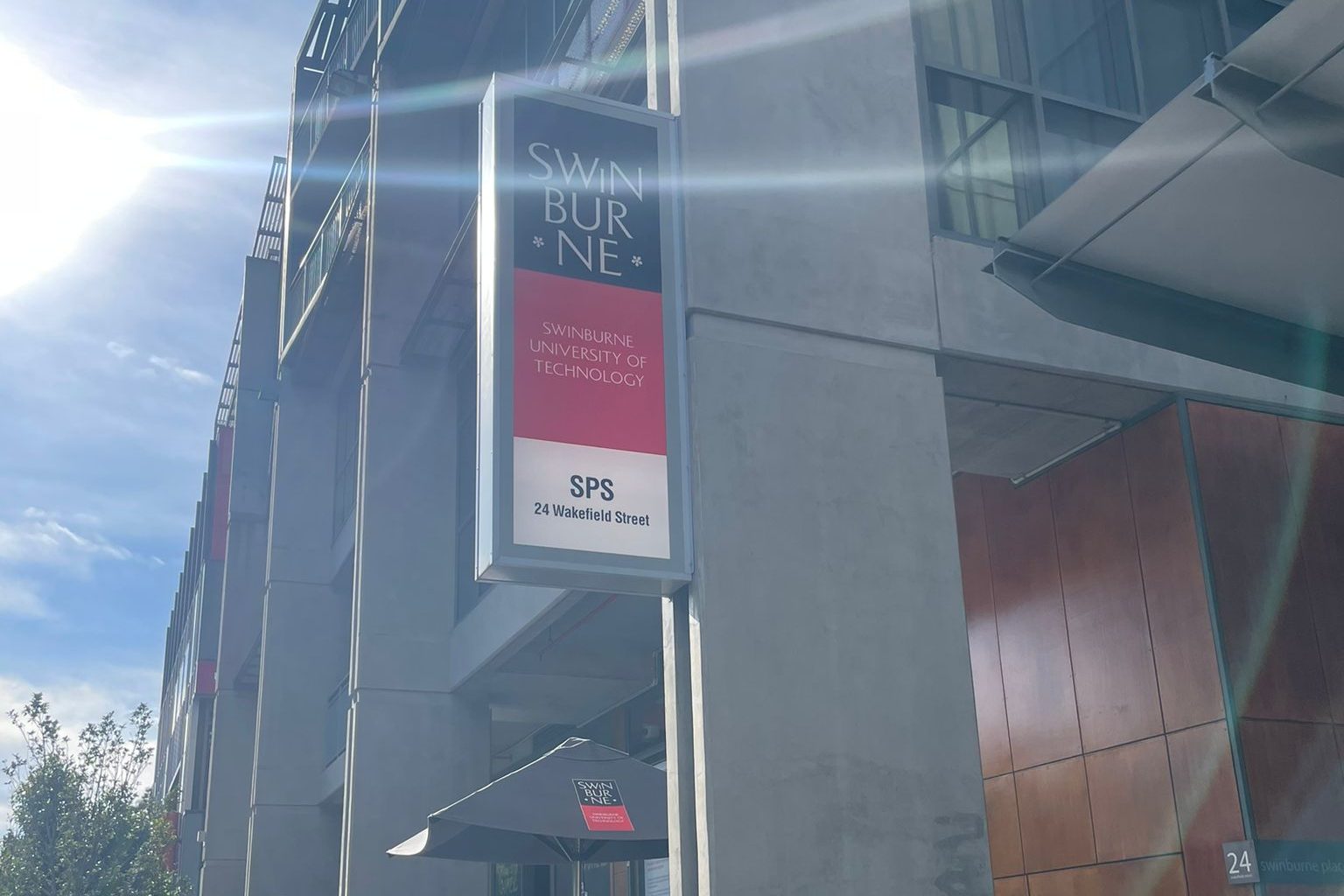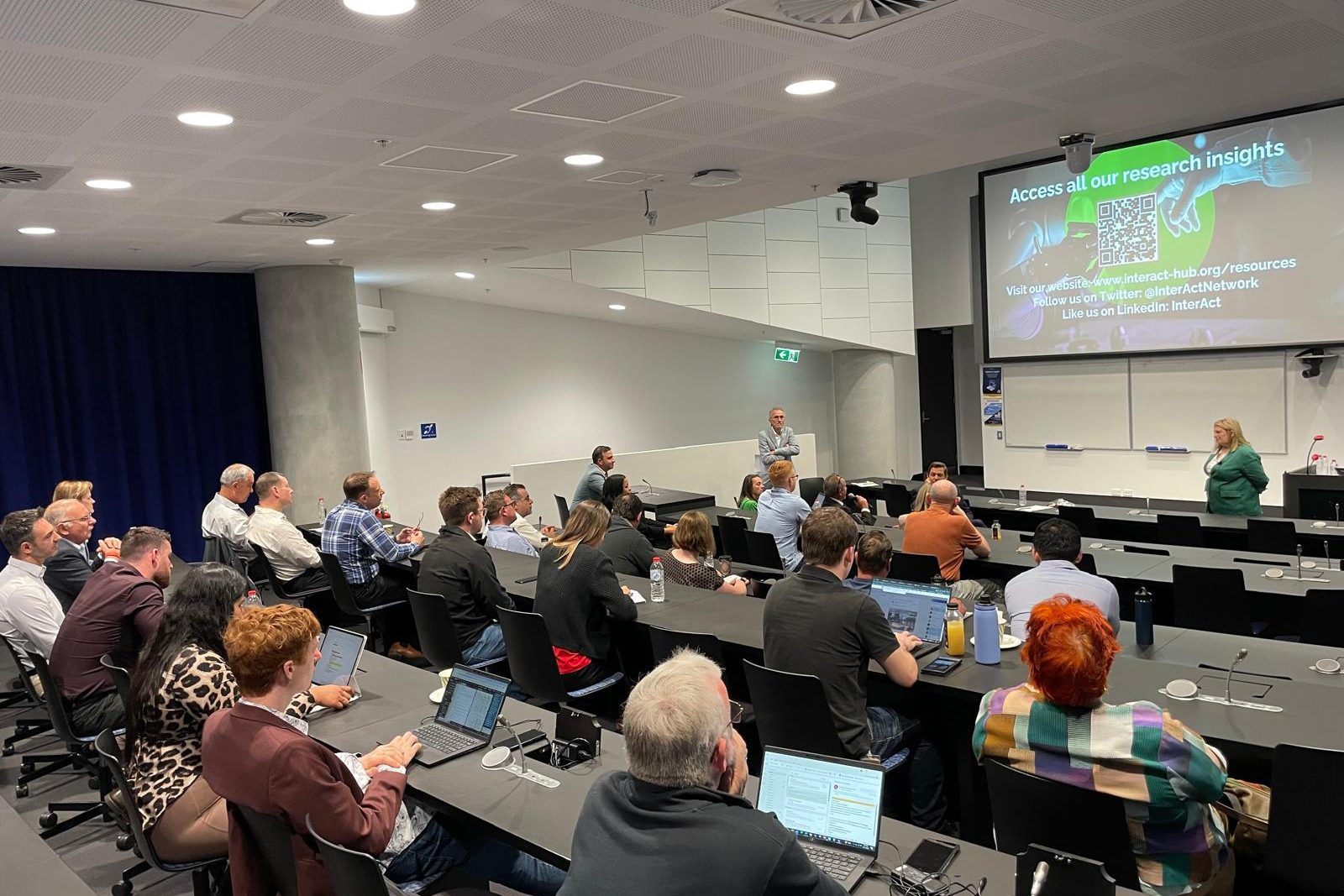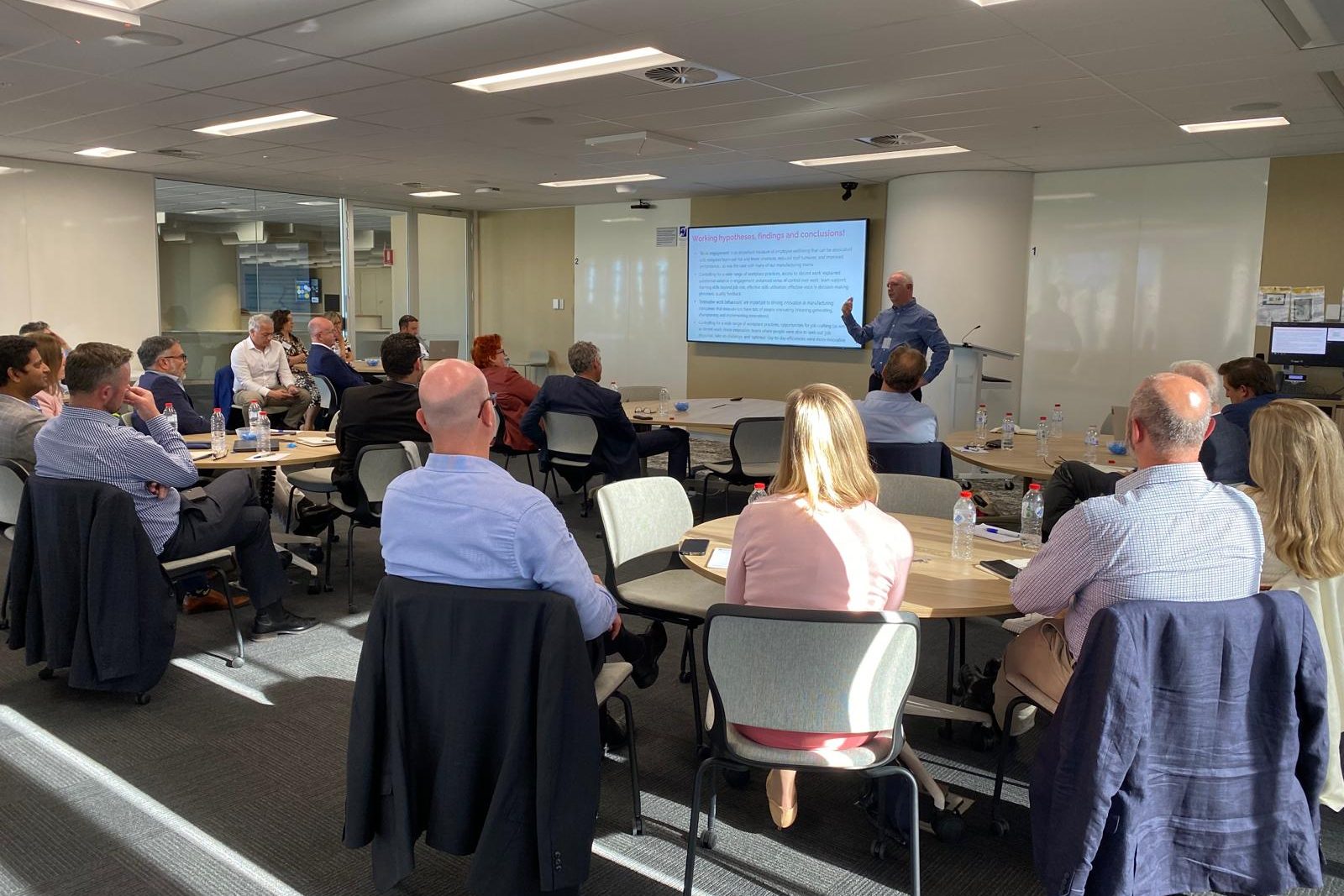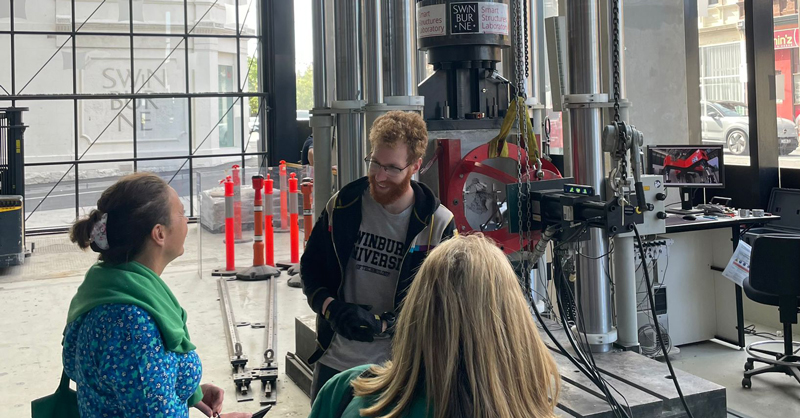Professor Colin Lindsay (University of Strathclyde and InterAct)
The InterAct Future of Work Team visited Australia for an international evidence-gathering mission, seeking to share findings from our research with manufacturing stakeholders and learn from good practice in fostering collaboration and innovation in the sector. As reported in our first blog from Professor Jill MacBryde, our first engagements in Brisbane were really inspiring, as we learned about how colleagues at Queensland University of Technology (QUT) have partnered with Australian manufacturers, and we visited the Advanced Robotics for Manufacturing (ARM) Hub, to see first-hand how this collaborative factory space brings together researchers, tech experts and growing manufacturing SMEs to ensure that manufacturers have the support they need to scale and innovate.
Our next stop was Melbourne, where the team hugely enjoyed hearing from Professor Laura Anne Bull (Deputy Vice Chancellor, Education, Experience & Employability at Swinburne University of Technology) and her team about Swinburne’s exciting work around business engagement and innovation, which is realised through impactful collaborations with manufacturers and others, but also integrated in the employability-related provision delivered to students. The jewels in the crown of Swinburne’s engagement with manufacturing stakeholders are their Factory of the Future, Smart Structures Lab and SEAM (Surface Engineering for Advanced Materials) Lab, where we were pleased to spend the morning for a research visit.

Experts in each laboratory walked us through some of the cutting-edge technologies they deploy to support the manufacturing industry in their innovation journeys. Professor Anita Kocsis (Director of Design Factory Melbourne at Swinburne) also helped us understand how the Factory of the Future and other manufacturing-facing initiatives connect with a broader suite of collaborations that place Swinburne and partners at the centre of a burgeoning design innovation ecosystem across Victoria.
We were fortunate to have Dr Avril Thomson (Head of Skills Programmes at the National Manufacturing Institute Scotland) as a key member of our Mission team, so that Avril could share insights from the NMIS team’s wide range of impactful learning and technology transfer solutions in Scotland, and compare notes with various factories of the future experts in Australia. There were interesting parallels between the work carried out by NMIS, Catapult network stakeholders and other partners in the UK, and the essential and practically useful support provided by Swinburne’s Factory of the Future, for example through its innovative Industrial Digital Transformation Hub.
The final Australian city stop for the team was Adelaide in South Australia, where we were able to spend time at a second Factory of the Future. Flinders University leads this fast-developing project, and we were able to tour some exciting innovation projects being developed by manufacturers in collaboration with the Factory of the Future. Inspirational Principal Manager Philipp Dautel shared Factory of the Future’s vision for a world-class, advanced manufacturing innovation and training facility that will engage up to 250 companies, a vision that is already beginning to be realised through a range of exciting ongoing projects and a major build underway. Factory of the Future is embedded within the stunning Tonsley Innovation District – a formerly disused automotive manufacturing site that has now regenerated into an innovation and inclusive hub hosting partners ranging from mega-MNEs like BAE Systems to local SMEs.
While visiting Adelaide, the team also enjoyed two excellent research dissemination events kindly hosted by Professor Michael Gilding (Vice President and Executive Dean, College of Business, Government and Law at Flinders University). First, we enjoyed a lively roundtable discussion with senior policy and business stakeholders, with Professor Jill MacBryde presenting InterAct research on attracting the next generation of talent to manufacturing work, while we also shared insights on digital ‘dynamic capabilities’ from our research with industry leaders in the UK, and Dr Avril Thomson spoke about NMIS’s impact in collaborating with Scottish manufacturers on emerging skill needs.

Then, we followed a first successful event with a half-day workshop targeting manufacturing managers and stakeholders. This time, I got the opportunity to share research on the importance of effective people management and fair work for the manufacturing sector (drawing on the work of both InterAct and the ESRC PrOPEL Hub). My colleagues Professor Jill MacBryde and Dr Avril Thomson both led interactive workshops on the future of work and skills in manufacturing.

It was great to engage directly with South Australia’s manufacturing stakeholder community, and we’re hugely grateful to Philipp, Michael and their teams at Factory of the Future and Flinders for making it happen. It was also interesting to hear much positivity about the future of manufacturing work from policy, business and manufacturing leaders, but also familiar concerns raised about skill shortages and the challenge of attracting (especially young) people to the sector.
Our take-aways?
Often following the UK (and indeed Scotland’s) example, national and regional policy stakeholders in Australia have invested in collaborative spaces and projects that have the potential to impact significantly on innovation and digital transformation in manufacturing. Just as in the UK, there are really exciting partnerships between higher education, research and manufacturing – something that obviously chimes with the core values of InterAct, and its partners. Finally, there was a willingness to engage with the idea that people – and therefore people’s jobs and experiences in the workplace – are crucial to understanding and fostering the high value, innovative future that we want in manufacturing. Sharing robust research and best practice on ‘what works’ in practices that support an innovative, inclusive and productive future of manufacturing work will remain a key mission of the InterAct team.

